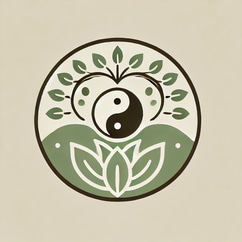Myths and Truths About Healthy Eating: Are You Falling for Any Traps?
Discover the biggest myths and truths about healthy eating and learn how to make informed choices for a more balanced and healthy life
Living in Harmony Team
2/14/20253 min read


Introduction
Healthy eating is a topic that generates a lot of discussion, but also a lot of misinformation. With so many fad diets, fitness influencers, and sensationalist news, it can be hard to separate myth from fact. Are you falling for any nutritional traps? In this post, we’ll debunk the biggest myths about healthy eating and provide science-based information to help you make more informed choices. Get ready for some surprises!
---
### 1. "Carbs Make You Fat": Truth or Myth?
One of the most common myths is the idea that carbs are the enemy of any diet. But the truth is, carbohydrates are the body’s primary source of energy. The problem isn’t carbs themselves, but the type and quantity consumed.
- Myth: All carbs are bad.
- Truth: Complex carbs, like those found in whole grains, legumes, and fruits, are essential for a balanced diet. Refined carbs, such as sugar and white flour, should be consumed in moderation.
Tip: Replace white bread and pasta with whole-grain versions and include more legumes and fruits in your diet.
---
### 2. "Detox Juices Are Miraculous": Really?
Detox juices have gained fame as a quick fix for cleansing the body and losing weight. But do they really work?
- Myth: Detox juices eliminate toxins and promote significant weight loss.
- Truth: The body already has organs, like the liver and kidneys, that naturally detoxify. Juices can be rich in vitamins, but they don’t have magical powers. Plus, many detox juices are loaded with fructose (fruit sugar), which can lead to insulin spikes.
Tip: Instead of relying on juices, invest in a balanced diet with fiber, protein, and healthy fats.
---
### 3. "Fat Is Bad for You": Forget This Myth!
For years, fat was considered the ultimate villain in diets. However, not all fats are created equal, and some are essential for the body’s proper functioning.
- Myth: All fats are harmful.
- Truth: Unsaturated fats, like those found in olive oil, avocados, and fish, are beneficial for the heart and brain. On the other hand, trans fats, found in processed foods, should be avoided.
Tip: Include sources of healthy fats in your diet, such as nuts, seeds, and extra virgin olive oil.
---
### 4. "Eating at Night Makes You Fat": Is It Really That Simple?
Many people believe that eating after a certain time leads to weight gain, but what really matters is the total calories consumed throughout the day and the quality of the food.
- Myth: Eating at night makes you gain more weight than eating during the day.
- Truth: Weight gain is related to excess calories, regardless of the time. However, eating too late can affect sleep quality and digestion.
Tip: If you’re hungry at night, opt for light snacks like natural yogurt or a small portion of fruit.
---
### 5. "Light and Diet Foods Are Always Better": Watch Out for This Trap!
Light and diet foods are often seen as healthier options, but that’s not always the case.
- Myth: Light and diet mean healthy.
- Truth: These products may have fewer calories or sugar, but they often contain more sodium, chemical additives, or fats to compensate for flavor.
Tip: Read labels carefully and prefer natural, minimally processed foods.
---
### 6. "Drinking Lemon Water Helps You Lose Weight": Does It Work?
Drinking lemon water on an empty stomach is a popular practice, but does it really help with weight loss?
- Myth: Lemon water burns fat.
- Truth: Lemon water can aid hydration and provide vitamin C, but there’s no scientific evidence that it directly promotes weight loss.
Tip: Stay hydrated and include lemon as part of a balanced diet, but don’t expect miracles.
---
### 7. "More Protein Is Always Better": Be Careful with Excess!
Protein is essential for muscle building and overall health, but consuming too much can cause problems.
- Myth: The more protein, the better.
- Truth: Excess protein can overload the kidneys and lead to fat storage, as the body converts the surplus into energy.
Tip: Consume protein from varied sources like lean meats, eggs, legumes, and dairy, but avoid overdoing it.
---
### 8. "Gluten and Lactose Should Be Avoided by Everyone": Really?
The trend of gluten-free and lactose-free diets has led many to believe these components are harmful for everyone.
- Myth: Gluten and lactose are bad for everyone.
- Truth: Only individuals with diagnosed intolerance or allergies need to avoid these components. For most people, they pose no risks.
Tip: If you suspect an intolerance, consult a doctor before cutting out entire food groups.
---
### Conclusion
Healthy eating doesn’t have to be complicated, but it’s important to base your choices on reliable, science-backed information. Now that you know some of the biggest myths and truths about nutrition, you’re better equipped to make conscious and balanced choices.
So, have you ever believed any of these myths? Share your experiences in the comments, and don’t forget to follow the blog for more health and wellness tips!
Living in Harmony - @primeconexao
Tips for a balanced lifestyle.
Prime Conection
contact@primeconexao
© 2024. All rights reserved.
primeconexao360@gmail.com
